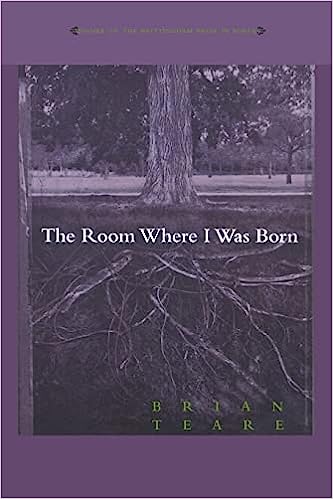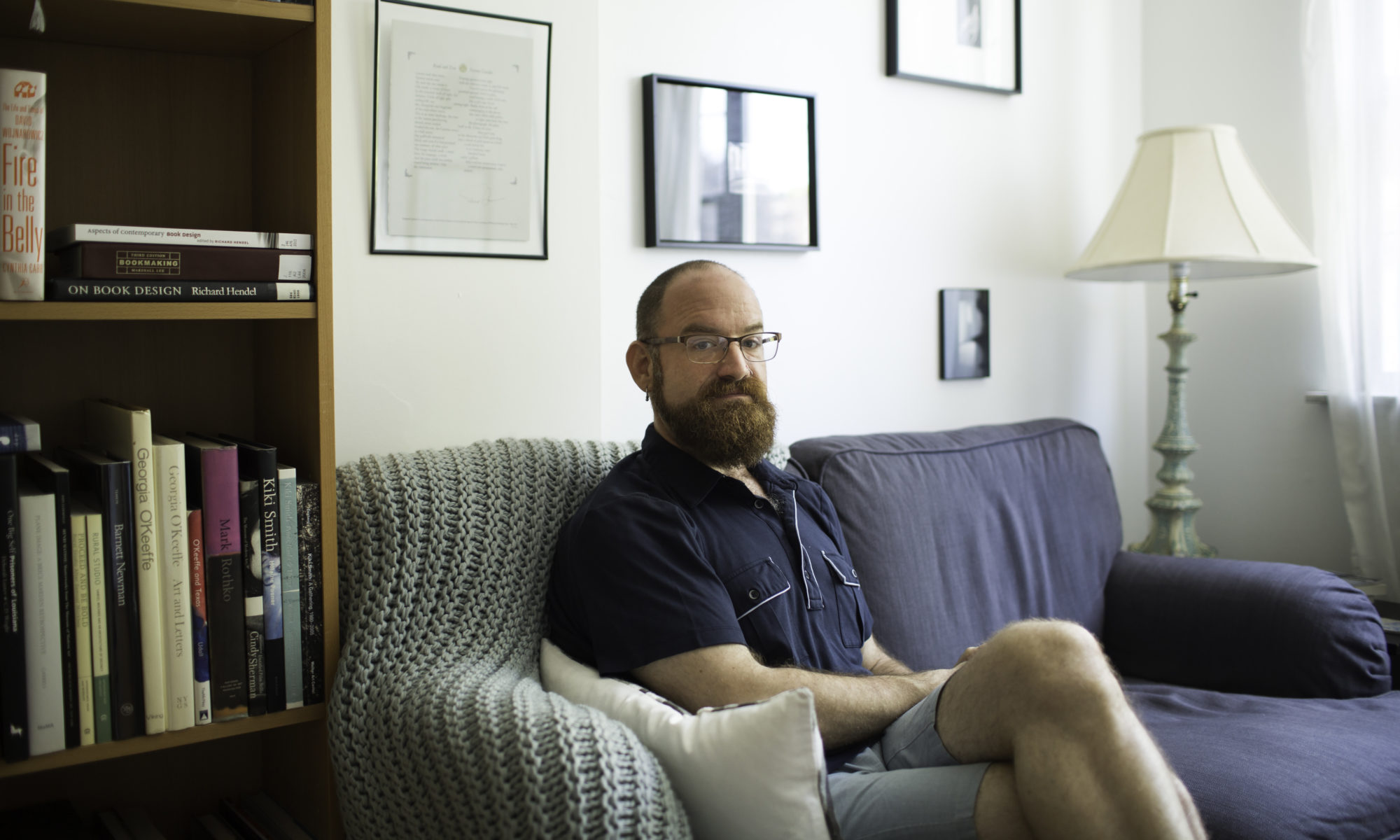
Winner of the 2003 Brittingham Prize
Winner of the 2004 Thom Gunn Award for Gay Poetry
“Brian Teare’s poetry is turning the lyric on its ear, along with the Southern Gothic, the fairy tale, the Old Testament—anything that gets in the way of his powerful voice gets pulled in, chewed up, spit out as a new and frightening (and sexy!) utterance. No one is safe in any of these poems, in any sense of the word. What a brave new voice, livid and gutsy and fresh.” — D. A. Powell
“Precious few first books possess the range, ambition, and erudition of Brian Teare’s. Yet Teare’s formidable intelligence always derives from emotional necessity, from an urgency of feeling and a sure command of song which allow him to meet with courage subjects that are sometimes harrowing, sometimes sublime. The Room Where I Was Born is a remarkable debut.” — David Wojahn
“In some poetry you feel there is too little lived experience—here you feel there is almost more than you can take in: you must both let the lines carry you swiftly, as they do, and read them slowly, for all they give you to ponder. For all their differences—and they are almost night and day—I would place this book next to the coming-of-age classic Housekeeping, for its deep, eerie beauty.” — Jean Valentine
“Poem by poem, The Room Where I Was Born posits a house of words that is, however, a house ‘the size and shape of not-telling / not hearing.’ Probing the relationship of metaphor and point-of-view to silence and the ‘literal’ world, these poems’ notable power lies in their daring to speak the truth, to hear and tell. Sensual, and smart as blazes, the poet’s language, with its hypnotic recapitulations of image and motif, moves us to the deepest of interiors, the secret-holding chambers of the human heart. Teare’s book is almost miraculously gracious and forgiving.” — Kelly Cherry, Brittingham Prize judge
: :
“Teare’s poetry at its core is interested in highlighting the strangeness of language. Readers will see this from the very first page in an untitled poem that begins, ‘Say it was father bought the word and made it his with a picture.’ The poem also introduces readers to Teare’s interest in the subjectivity of the I and the relativity of language. In the grammar of his poetry, the I is ‘outside the poem,’ sitting on a porch, dragging on a cigarette, pondering ‘how a narrative’s ending denotes another beginning,’ as he puts it in one poem. ‘When I say “I” I mean eye, sum of my watching,’ he writes in ‘First person plural is a house.’ With his devious plays on grammar, his talent for finding the strange incantatory spell in language, and his ability to create new myths, Teare might prove to be one of the stand-out younger poets writing today.” – Christopher Hennessy
“Teare risks a lot with his dark and steamy narratives. They locate themselves on the borders of melodrama and nightmare and could easily slide over or fall into parody. But they maintain their dangerous balance, in part because of language that offsets lushness with bald fact (‘beauty . . . in the tinny chuckle of his belt unbuckling, // . . . in the tick of bills he counts out after’), in part because of the distancing and sometimes weirdly distorting effect of those literary formulae. The Room Where I Was Born casts a powerful spell, and it has to: ‘When the book and voice and light give up and go / to bed under another name,’ all hell breaks loose. ‘This is knowledge: the child awake as the light goes out.'” – Susan Settlemyre Williams, Blackbird
